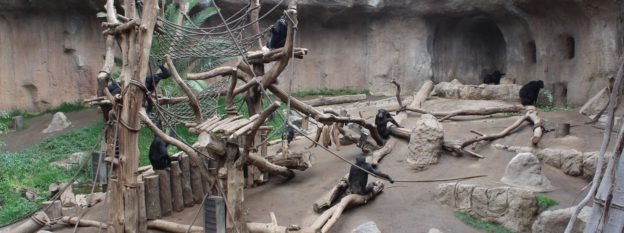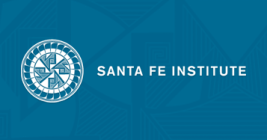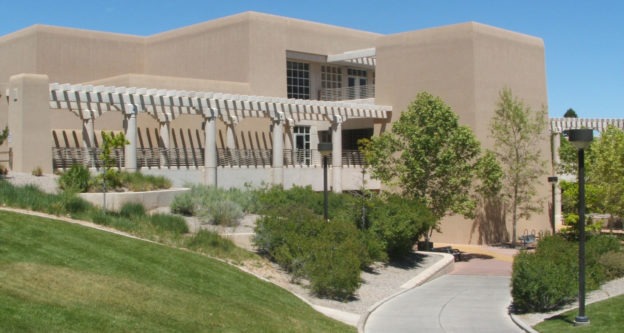This week I visited the Department of Economics at the University of Zurich. I met with Charles Efferson and toured the department’s impressive economics and neuroscience research facilities.



This week I visited the Department of Economics at the University of Zurich. I met with Charles Efferson and toured the department’s impressive economics and neuroscience research facilities.

This week I had meetings with Mark van Vugt, Dan Balliet, and Allen Grabo at the Vrije Universiteit in Amsterdam, Netherlands. I also met with Tom Pollet, Josh Tybur, and Francesca Righetti. Before leaving Amsterdam, I caught up with my friend Bastiaan Rutjens, formerly a postdoc at UBC and now at the University of Amsterdam.

This week I had meetings with Mike Tomasello and several members of his lab, including Robert Hepach, Marco Schmidt, and Bailey House at the Max Planck Institute for Evolutionary Anthropology in Leipzig, Germany. It was a great pleasure to also visit the Institute’s primate research facility at the Leipzig Zoo.

As one of the 25 finalists, I spent the last few days at Congress of the Humanities and Social Sciences 2014 at Brock University in St Catharines, Ontario. My talk on the Database of Religious History was selected as one of 5 winners of the Social Sciences and Humanities Research Council of Canada’s Research for a Better Life: The Storytellers challenge. The research was featured on the Federal Government’s official website, canada.ca (image below).
I was invited by the Social Sciences and Humanities Research Council to elaborate on the vision and achievements of the Database of Religious History, complementing the winning video, which you can watch below:
The panel of 4 judges included Shari Graydon, author, journalist and founder of Informed Opinions; Antonia Maioni, president of the Federation for the Humanities and Social Sciences; Pierre Normand, Vice-President, External Relations and Communications at the Canada Foundation for Innovation; and Bruce Wallace, editor of Policy Options magazine and former foreign editor for the Los Angeles Times.
I will be presenting the same talk to a VIP audience at SSHRC’s 2014 Impact Awards ceremony in early November.

This week I visited my alma mater, The University of Queensland, Australia. Mark Nielsen and Thomas Suddendorf (both of whom I was lucky enough to take classes with as an undergraduate) invited me to present my paper on how “Sociality Influences Cultural Complexity” and my chapter on Cultural Evolution. The chapter, coauthored with Maciek Chudek and Joe Henrich, will be appearing in the new Handbook of Evolutionary Psychology. I presented the research to the Evolutionary Psychology group, which I took great pleasure in, being a member of the group as an undergraduate.
While at Queensland, I also caught up with my Honours supervisor, Penny Sanderson, and my former colleagues, Morgan Tear and Matt Thompson.

The Social Sciences and Humanities Research Council of Canada announced the winners of of their Research for a Better Life: The Storytellers challenge. Our entry was one of the winners. We presented the broad vision of The Database of Religious History. I am the Technical Director of the project, but this project was done unofficially in my capacity as a researcher and writer. My friend and collaborator, Jordan Levine, was the narrator. The talented Risto Turunen, created the animations. Mike Woods wrote the score.
Our projects have since diverged, but credit for the concept and vision also goes to Seshat: The Global History Databank led by Peter Turchin, Harvey Whitehouse, and Pieter Francois. The Database of Religious History is led by Ted Slingerland and Mark Collard.
I will be presenting the entry at Congress 2014 in May and we will be presenting The Database of Religious History at the Digital Humanities Conference in Lausanne, Switzerland in July.
You can watch the video below:

I attended the 15th Annual Meeting of The Society for Personality and Social Psychology (SPSP) in Austin, Texas. I presented a model at the Dynamical Systems and Computational Modeling in Social Psychology preconference. The model uses two principles of human decision making to produce the three key properties of human social networks – high clustering (a friend of a friend is likely your friend), low characteristic path length (“6 degrees of separation”), and a positively skewed degree distribution (most people have a few friends, but a few people have many friends).
My collaborator and advisor, Mark Schaller, presented a related model at a symposium on “The Role of Interpersonal Processes in Group Phenomena and Cultural Development”. The model presented some preliminary research using the model I presented to better understand the dynamics of social influence within social networks.

I spent the last week at Hokkaido University in Sapporo, Japan. I was invited to present my paper on how “Sociality Influences Cultural Complexity“. I also helped set up an experiment that Joe Henrich, Steve Heine, and I are running in collaboration with Tatsuya Kameda and Wataru Toyokawa. We previously collected data in Hong Kong in collaboration with Takeshi Hamamura.
| Muthukrishna, M., Shulman, B. W., Vasilescu, V., & Henrich, J. (2013). Sociality influences cultural complexity. Proceedings of the Royal Society B: Biological Sciences, 281(1774). |
Proceedings of the Royal Society B: Biological Sciences published my paper with Ben W. Shulman, Vlad Vasilescu, and Joe Henrich showing that sociality influences cultural complexity. Across two experiments, we show that access to more people (1) increases cultural complexity, allowing for cumulative cultural evolution and (2) reduces the loss of cultural knowledge and skill. We found that students paid most attention to the most capable of their mentors, but also drew inspiration from the others, suggesting that the benefit of greater interconnectivity is twofold: you have access to the best people and information, but are also able to recombine knowledge from a greater variety of people.
Nature News, Kurzweil AI, CKNW, and GlobalTV were among the media outlets that featured the research. I explain the research to Philip Till at CKNW below.
| Muthukrishna, M., Shulman, B. W., Vasilescu, V., & Henrich, J. (2013). Sociality influences cultural complexity. Proceedings of the Royal Society B: Biological Sciences, 281(1774). [Download] |

I was awarded the Vanier Canada Graduate Scholarship. Launched in 2009, the Vanier Canada Graduate Scholarship (Vanier CGS) Program’s goal is to strengthen Canada’s ability to attract and retain the world’s top-tier doctoral students by providing successful candidates with significant freedom to pursue and complete doctoral studies. Vanier scholars demonstrate leadership skills and a high standard of scholarly achievement. The award is worth $150 000 over 3 years.
This award will fund my research for the next 3 years and hopefully raise the profile of research on the role and evolution of culture in human evolution.

I attended the 25th Annual Meeting of Human Behavior and Evolution Society (HBES) in Miami, Florida. I gave a talk on two laboratory experiments I ran on cultural transmission (in press). The experiments tested the predictions of several evolutionary models showing the relationship between sociality (population size, interconnectedness, etc) and cultural complexity.
My results show that when people can observe and learn from a wider range of teachers, groups can better maintain technical skills and even increase the group’s average skill over successive laboratory generations. These results suggest that the secret of our species’ success may lie in the combination of our imitative abilities and our sociality, not in our individual smarts.

I spent the last week at the Chinese University of Hong Kong. I was invited to give a talk on “Evolutionary Approaches to Studying Culture”. I also helped set up a new experiment on overconfidence that Joe Henrich, Steve Heine and I are running with Takeshi Hamamura.

I was recently appointed the Technical Director of the The Database of Religious History (DRH). The DRH is one of the flagship initiatives of the Cultural Evolution of Religion Research Consortium (CERC). The DRH aims to bring together, in a standardized, systematic form, data on religious systems (and later more general historical variables) from across the world and throughout history, from the earliest archaeological records up to approximately 1500-1600 CE. By creating a quantitative database of social complexity, warfare, ritual, religion, and resources from across the globe and throughout history in a manner that will allow systematic statistical analysis, we hope to discover new patterns in world history, and test of novel hypotheses about the evolution of social complexity.
As Technical Director, I am responsible for the creation of the database system and general infrastructure.

Ursula Culligan from Elsevier Connect interviewed me about my proposal for a peer review incentive system. You can read the text of our interview here.

I was invited to a workshop on Network Structure, Political Hierarchy and Economic Inequality at the Sante Fe Institute. The workshop, organized by Sam Bowles and Paul Hooper, brought together leading contributors to the theoretical literature on social networks, anthropologists and other field researchers using network techniques to study the social structure of small-scale societies. I had the opportunity to discuss social network analysis and its application to the study of social structures and culture with several lead social network researchers, including Matt Jackson and Rajiv Sethi.
The project is part of the Santa Fe Institute’s Dynamics of Wealth Inequality Project.

I attended the 14th Annual Meeting of The Society for Personality and Social Psychology (SPSP) in New Orleans, Louisiana. I presented a poster with results from two laboratory experiments I ran on cultural transmission. The experiments tested the predictions of several evolutionary models showing the relationship between sociality (population size, interconnectedness, etc) and cultural complexity.
My results show that when people can observe and learn from a wider range of teachers, groups can better maintain technical skills and even increase the group’s average skill over successive laboratory generations. These results suggest that the secret of our species’ success may lie in the combination of our imitative abilities and our sociality, not in our individual smarts.

I was recently made a Liu Scholar by the Liu Institute for Global Issues. The Liu Scholar Program brings together doctoral students from various disciplines whose research intersects with global issues. As a Liu Scholar, I hope to collaborate with researchers and other stakeholders to explore how the science of culture and cultural evolution can be applied to issues, such as sustainability, security, and social justice.

Elsevier recently ran a competition where researchers around the world were asked How do you see the future of peer review?. I submitted an idea that leverages the power of reputation. My idea involved an anonymous reputation point system inspired by public peer-reviewed forums like Reddit, Slashdot.org, StackOverflow, and Amazon.com. You can read a summary of my entry here. The winner of the competition, Simon Gosling, had a similar suggestion, but with a greater focus on badges. Simon and I are now working with Clare Lehane and Elsevier to pilot our ideas on an Elsevier journal.
This is actually the second Elsevier competition I have won. In 2009, our CSIRO team was one of three finalists in the Elsevier Grand Challenge.
I was recently appointed as one of two Department Statistical Consultants. As a Statistical Consultant I will provide advice and assistance to faculty and graduate students on the research design and statistical components of their research.

I attended the 24th Annual Meeting of Human Behavior and Evolution Society (HBES) in Albuquerque, New Mexico. I presented a poster with further results from my model of the coevolution of brains and culture. The model is a plausible explanation for the expansion of the human brain size during the Pleistocene.